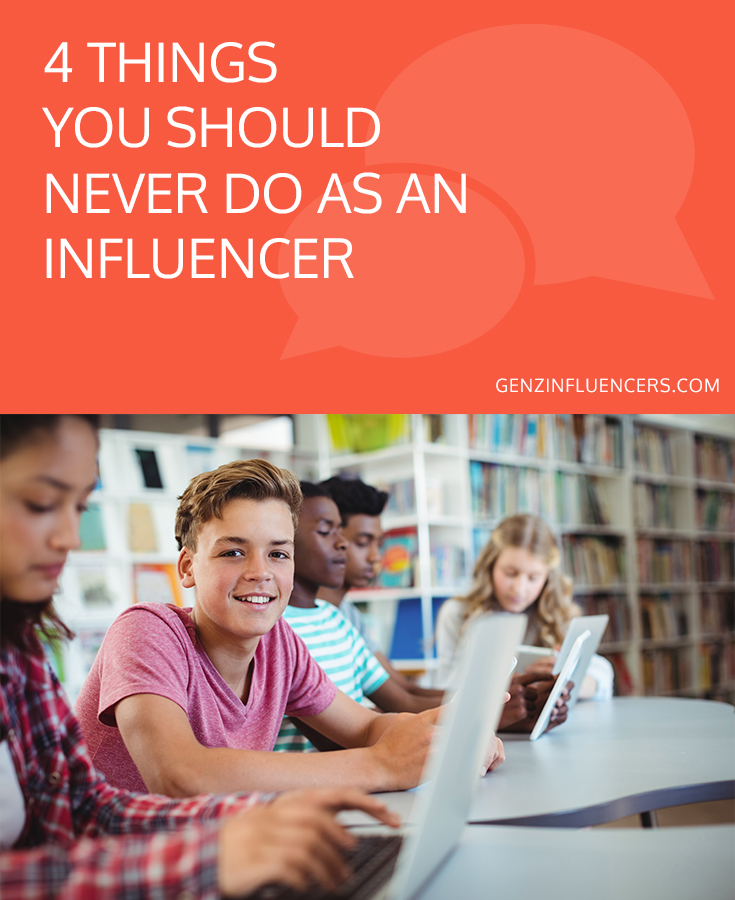Our job is to connect Gen Z social media influencers with brands to promote products and information to their digital audiences. As you may imagine, we’ve dealt with some pretty interesting situations and people along the way. Over the years, these exciting but often cringe-worthy moments taught us a few guidelines about what influencers should – and more importantly, should not – do when communicating with brands. Keep our advice in mind as you encounter new opportunities so you can be sure to turn every brand relationship into success.
1. Communicating Poorly
In today’s day and age, most brand employees and influencers are constantly connected to email. Because of this, brands expect influencers to respond quickly to emails and inquiries. Thus, you must make communication a priority in your digital business. This is also important in securing new business with brands because you don’t want to wait too long when an opportunity presents itself. Prompt communication is also important when you’re already involved with a brand. Companies go through a lot of effort to locate, vet, recruit, and select influencers, and they often view the influencer/ brand partnership as a business transaction. When an influencer is slow to respond or difficult to communicate with, the brand sees it as a disappointment and will not work with the influencer in the future. Prompt communication can make an influencer stand out just as much as it can damage a relationship.
2. Not Speaking Up
Brands and agencies often send dozens, if not hundreds, of emails to potential partners when recruiting Gen Z influencers for a social media marketing program. Emails often include a registration link or another call-to-action. To set yourself apart from the crowd and enhance your likelihood of securing a spot on the final list of participants, introduce yourself to the program organizer. Send a direct email with your media kit or explanation about why you’re a good fit for the program. Developing a personal connection shows you are more likely to create authentic content once you are selected for the program.
3. Not Following Directions
When working on a program, influencers usually receive very specific goals and talking points from the brand in order to convey specific information to potential customers. Businesses expect teen influencers to be just as intentional with their posts as the brands are with their marketing. Make sure to double check the program criteria before finishing your end of the deal. If you make a habit of completing every detail of the agreement, chances are the brand will want to continue to work with you on future marketing to Gen Z programs.
4. Under-Delivering
When brands work with influencers, they act as customers paying for a service, such as posting a photo, sharing an affiliate link, or participating in an ambassador group. Nothing is more disappointing to a brand than feeling like they paid for something that didn’t meet their expectations. Imagine if you bought a grande caramel macchiato from Starbucks and instead you were handed a tall dark coffee with milk? You’d be disappointed, right? The same goes for brands: they expect nothing less than what is “ordered.” What if, in the Starbucks scenario, the barista handed you a venti caramel macchiato with a cake pop on the side all for the price you paid for the drink? You’d want to keep going back to that Starbucks, right? It works the same in the brand/ influencer transaction: if you want to stand out, you should over-deliver on every project, and you will develop lucrative relationships with brands over time.
Influencers should approach their relationship with brands as a mix between a business partnership and a business transaction. At the end of the day, successful business endeavors are defined as mutually beneficial partnerships. Essentially, what this means for Gen Z influencers is that you should provide exceptional service to pave the way for continued growth.
What brand relationship strategies have worked in your business, and what advice do you have for others?
Pin for later:

